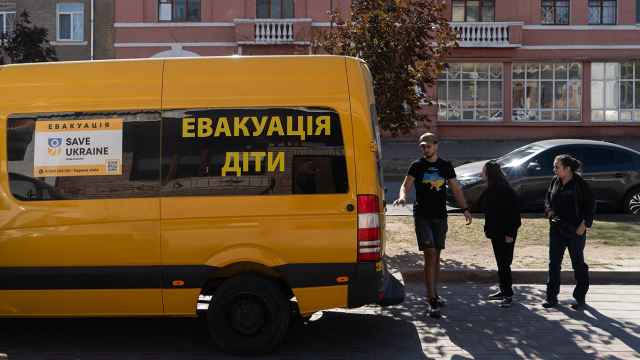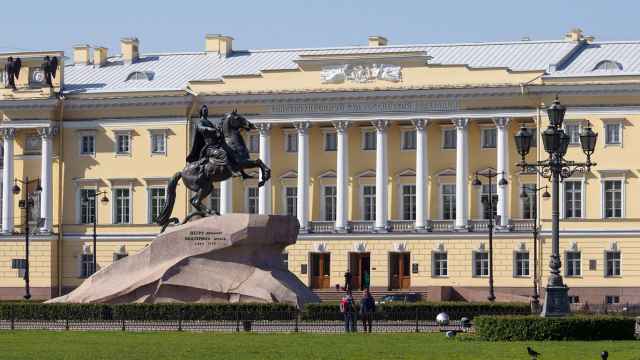U.S. officials released a declassified intelligence report on Friday repeating the monumental accusations against the Kremlin that have been circulating in the American media for months.
The New York Times called the document “a damning and surprisingly detailed account of Russia’s efforts to undermine the American electoral system.” The Washington Post wrote that it’s a “remarkably blunt assessment” and “an extraordinary postmortem of a Russian assault on a pillar of American democracy.” According to The Wall Street Journal, U.S. intelligence agencies have supplied the public with “surprisingly detailed findings.”
These assessments by three of America’s most influential newspapers are themselves surprising and remarkable, in light of the fact that the U.S. intelligence community revealed nothing new on Friday, repeating conclusions already publicized by the White House and officials like U.S. National Intelligence Director James Clapper.
The report itself states clearly that “the full supporting information on key elements of [Russia’s] influence campaign” was redacted from the declassified version, meaning that ordinary people like you and me who want to know the specifics of the evidence against Russia are better off reading studies published by cybersecurity companies like ThreatConnect and CrowdStrike, where you’ll find loads of technical data, as well as little motivational tidbits like “If you encounter a BEAR [hacker], you’re doing something right. Don’t back down.”
The most remarkable thing about the government’s assessment released on Friday is that more than a quarter of the report is merely an annex dedicated to the colossal significance of the RT (Russia Today) television network. These seven pages written by the U.S. intelligence community comprise what is perhaps the greatest and most generous Christmas gift in the history of Russian Orthodoxy, which celebrates the birth of Christ on Saturday, Jan. 7.
Thanks to the C.I.A., F.B.I., and N.S.A., Russia Today can count on continued, likely expanded, Kremlin funding.
American intelligence agencies justify their exegesis of RT on the grounds that “some of [their] judgments about Kremlin preferences and intent are drawn from the behavior of Kremlin loyal political figures, state media, and pro-Kremlin social media actors.”
It’s not insane to look to Russian propaganda outlets and Internet trolls, in order to speculate about the Kremlin’s preferences and plans, but there is much that’s unnerving about just how Washington reads the tea leaves of the Russian media. If these are the outlines of the U.S. government’s guesswork on Russia, that’s scary.
For instance, the report (not the annex) stresses that Dmitry Kiselyov, the Kremlin’s so-called “chief propagandist,” has treated Donald Trump sympathetically on his television show, while disparaging the U.S. democratic process. Kiselyov’s broadcasts — which air in Russian, for domestic viewers — are cited as an example of “messaging to Russian audiences” that presumably reveals the Kremlin’s preferences and intentions.
This latter hypothesis is an especially tough sell: how does a television show in Russian for Russians indicate the Kremlin’s intention to meddle in the U.S. democratic system? Every time officials in Washington criticize the failures of Russia’s political system, should intelligence officers in Moscow record this as an admission of intent to undermine Russia?
The U.S. intelligence community says the Kremlin’s influence campaign was “multifaceted,” which is why the report also discusses the role played by Russian “Internet trolls,” focusing on the Internet Research Agency based in St. Petersburg. Without naming him, the assessment apparently acknowledges reporting on this group by American journalist Adrian Chen, whose down-the-rabbit-hole article, “The Agency,” came out in The New York Times in June 2015.
But Chen’s work on the infamous “troll factory” came just as the agency’s heyday was ending, as the war in eastern Ukraine became a frozen conflict. Almost two years before “The Agency” was published, the Russian newspaper Novaya Gazeta wrote about the organization. A year later, before Chen’s story, Max Seddon also wrote a long piece, published on BuzzFeed.
In 2016, the Internet Research Agency’s two biggest feats were getting attacked by Molotov cocktails in October by Ukrainian activists, and being falsely accused by The Washington Post of masterminding the “#TrumpWon” post-debate Twitter hashtag in September.
Using St. Petersburg’s troll factory as evidence of Kremlin intentions, moreover, offers only tenuous insights. The premise of this thinking is that Evgeny Prigozhin, the supposed owner of the factory, is taking cues from Vladimir Putin, given their long personal history and Prigozhin’s close business ties with the Russian state. Prigozhin is infamous, however, for diverting bits of his massive wealth to futile projects to disrupt and infiltrate the Russian opposition. He clearly believes that this kind of work keeps him in the good graces of the Kremlin, but attributing his efforts to direct orders from Putin is a stretch.
The U.S. intelligence community stretches common sense in other sections of its report, as well, notably when it calls nationalist politician and aging national clown Vladimir Zhirinovsky a “pro-Kremlin proxy.” Washington is apparently concerned that he opened a bottle of champagne and toasted Donald Trump’s victory in November. Zhirinovsky is the same man who traveled to Baghdad in 2003, ahead of the U.S. invasion, and delivered a drunken tirade against President Bush, threatening to sink the United States under the oceans, using secret Russian gravitational weapons.
By far a more disturbing aspect of the declassified report, however, is that the U.S. intelligence community seems to accept RT’s own self-aggrandizing assessment of its global influence. The assessment even cites an unpublished Nielsen study supposedly claiming that RT rapidly expanded its audience in several American cities.
Also, when reviewing RT’s popularity on YouTube, the report completely ignores critics who say it owes its success to buying and redistributing licensed content about largely apolitical news events.
Go ahead and peek at RT’s YouTube channel right now; the most popular videos are disaster footage — crashing meteorites, “golden voice” homeless men, and earthquakes.
And then there is the U.S. government’s concern about what RT actually broadcasts. In addition to the network’s suspicious ties to Wikileaks and its animosity toward Hillary Clinton, the intelligence assessment sounds the alarm over RT news reports about the Occupy Wall Street movement, and segments highlighting “a lack of democracy” in America, excessive surveillance, police brutality, and other injustices. Not only are these perfectly legitimate subjects for journalism, but these are also the mainstay themes of American reporting on Russia.
After so many leaks and rumors, it is a relief finally to have the U.S. intelligence community’s assessment in writing. Now we know what the accusations are, and we have a vague idea about why Washington believes what it does.
Unfortunately, America’s case against the Kremlin suffers from some major flaws that should be acknowledged, even by individuals who argue reasonably that the Russian government likely used hackers to attack and undermine democratic institutions in the U.S.
Moscow’s “influence campaign” is undoubtedly “multifaceted,” but that’s no reason to embrace the tall tales propagandists tell about themselves, and it’s not an excuse to confuse reporting on social justice with foreign aggression.
A Message from The Moscow Times:
Dear readers,
We are facing unprecedented challenges. Russia's Prosecutor General's Office has designated The Moscow Times as an "undesirable" organization, criminalizing our work and putting our staff at risk of prosecution. This follows our earlier unjust labeling as a "foreign agent."
These actions are direct attempts to silence independent journalism in Russia. The authorities claim our work "discredits the decisions of the Russian leadership." We see things differently: we strive to provide accurate, unbiased reporting on Russia.
We, the journalists of The Moscow Times, refuse to be silenced. But to continue our work, we need your help.
Your support, no matter how small, makes a world of difference. If you can, please support us monthly starting from just $2. It's quick to set up, and every contribution makes a significant impact.
By supporting The Moscow Times, you're defending open, independent journalism in the face of repression. Thank you for standing with us.
Remind me later.






